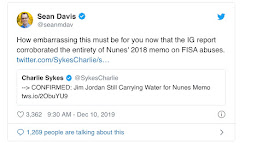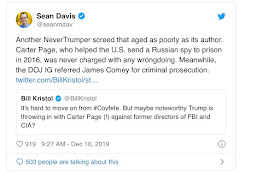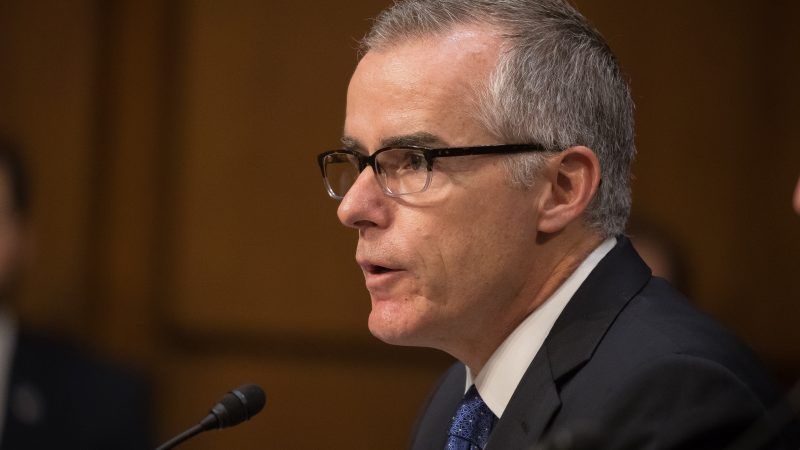Opinion | Commentary
FISA has failed to protect American citizens from abusive surveillance.
My name is Carter Page, and I wish you were hearing it for the first time. If you were, I could introduce myself—a former naval officer who has worked for political figures from both parties. But my identity has been reduced to a series of false accusations. If something isn’t done to prevent future abuses of power by intelligence agencies, I won’t be the last to lose his good name this way.
In 2016-17 the government I once served investigated me on suspicion of being an intermediary between the Trump campaign and the Russian government. This week Inspector General Michael Horowitz detailed how officials committed troubling errors over the course of the probe. From the day news of the investigation broke, I have faced threats to my life and have been forced to live like a fugitive. I still don’t feel safe enough to establish a fixed residence.
I still have many questions about the FBI investigation that ruined my life. If you value your privacy, reputation and right to political expression, you should too.
I’m by no means the first person to raise these concerns. In the 1970s, the Church Committee uncovered troubling abuses. In response, Congress passed the Foreign Intelligence Surveillance Act of 1978. FISA was supposed to protect U.S. citizens from the formidable investigatory powers the government can turn on foreign agents and terrorists. But it didn’t protect me. And those surveillance powers have grown exponentially since the 1970s.
The Horowitz Report on the FBI and its Consequences
Mr. Horowitz’s report identified “at least 17 significant errors or omissions” in the application for a surveillance warrant against me. Among them: the FBI’s altering a document to secure my FISA warrant’s renewal, as well as its repeated reliance on uncorroborated information in the Steele dossier to justify intrusive surveillance. “That so many basic and fundamental failures were made,” the report said, “raised significant questions regarding the FBI chain of command’s management and supervision of the FISA process.”
The irregularities continued after the investigation ended. In 2018 the FBI made my FISA warrant application public in response to Freedom of Information Act lawsuits, something it hasn’t done with any other application in FISA’s 40-year history. The intelligence community also stonewalled me. After the inspector general drafted his report, the Justice Department wouldn’t let me review it before its release. The department lets only those interviewed for a report review its draft, in this case including former FBI Deputy Director Andrew McCabe, whom Mr. Horowitz earlier referred for criminal investigation for lying to investigators.
While I appreciate Mr. Horowitz’s work, it’s not enough. When he testifies Wednesday before the Senate Judiciary Committee, members should ask him the following questions:
• Will you recommend prohibiting the use of uncorroborated political opposition research in FISA applications?
• How can Americans have faith in the FISA process after an FBI lawyer was found to have falsified evidence in a warrant application?
• What timeline do you recommend for a review of responsibility and oversight within the FBI chain of command in my case, and who should carry out that investigation?
• What other steps do you recommend to reform the FISA process so such abuse can’t happen again?
My experience should be a warning. For three years, I have opened myself up to more than 40 hours of interrogation without a lawyer, including full days of questioning before the House and Senate Intelligence committees and by special counsel Robert Mueller’s team. After all this testimony, and after more than a year of round-the-clock surveillance under FISA warrants, I have never been charged with any crime. If senators don’t demand answers, they’re practically inviting intelligence agencies to use their surveillance powers to target domestic political opponents.
I will never completely restore my name. All I can do is try to make sure this never happens again. As the Supreme Court warned nearly a half-century ago: “The price of lawful public dissent must not be a dread of subjection to an unchecked surveillance power.”
Mr. Page is the managing partner of Global Natural Gas Ventures LLC.


















